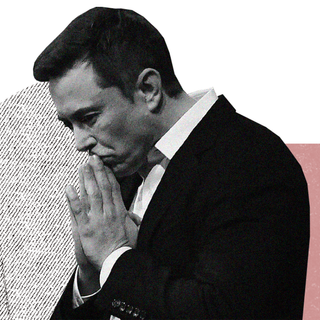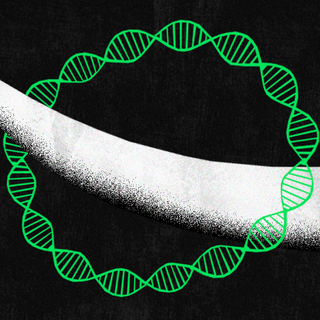
Why Offenders Feel Like ‘Victims’ When They Are Denied Forgiveness
“[Offenders] interpret non-forgiveness as both a norm violation and a threat to their sense of power,” explain scientists.

Sample this: a friend did a morally dubious action, apologized, then felt offended because the person they hurt wouldn’t forgive them. The friend in question begins to feel like a “victim” in this scenario, and a new study explains why.
“When offenders apologize to victims for a wrongdoing, they often expect forgiveness in return,” the recently published research noted. Its results, however, suggest that the “expectation” that offenders have, almost borders on “entitlement” — the moment they’re denied forgiveness, they feel they are the ones being wronged.
Published in Personality and Social Psychology Bulletin, the research paper is a compilation of four studies that reached the same conclusion: “[offenders] interpret non-forgiveness as both a norm violation and a threat to their sense of power.”
Given how much people are already pressured socially to do forgive anyone who offended them — and “be the bigger person” — one worries that the findings of the present study might serve to reinforce the pressure. It seems unfair that not only does a “victim” have to undergo being wronged, but also be treated as a “bad person” and an “offender” for choosing to be acrimonious about being wronged.
But the explanation for it is: when someone who has been in the wrong apologizes, to them, their apology “puts the power back in the hands” of the original victim, the person who was hurt.
Related on The Swaddle:
What Is the ‘Victim Complex’ and Why Do People Experience It?
The researchers believe “[victims] can choose whether to forgive or bear a grudge, representing a loss of control for offenders that is only regained once forgiveness has been granted overtly,” explains an article on Reader’s Digest.
Here’s an interesting observation the researchers made, though: if someone explicitly refuses to forgive their offender, the offender feels more “wronged” and, therefore, victimized. But, if their apology is met by an ambiguous response, they don’t feel victimized. In both cases, offenders do experience the loss of a sense of power and control, though — albeit less, in the latter scenario.
Arguably many equations have a power dynamic — one that revolves around “offender” and “victimhood.” The idea of being a “victim” is reinforced when people feel disempowered.
What lies at the heart of their disgruntlement is their feeling of entitlement to forgiveness, which begs the question: did they truly feel any guilt or remorse, or was their apology an attempt to make them feel better about themselves? If it’s the latter, given how an overwhelming majority of the study participants felt they were “owed” forgiveness, what does that say about human nature? Unfortunately, the study didn’t delve into these questions.
Worse still, the researchers found that when offenders are denied forgiveness, they not only stop exhibiting reconciliatory behavior — like trying to make amends and reparations — but also begin to regret the apology in the first place.
Related on The Swaddle:
Why Some People Over‑Apologize, And Others Never Do
“Forgiving someone who has wronged you can lead to a decreased likelihood of repeat offending and increased likelihood that the perpetrator will engage in conciliatory behavior — just some of the reasons restorative justice has become more popular,” Reader’s Digest stated.
The path of “restorative justice” can involve a reconciliatory meeting between the victim and the offender — not merely to ensure a “forgive and forget”-type conclusion to the matter, but to enable the parties to reach a consensus on what facets of an offenders behavior were wrong, and how they can make amends. Non-forgiveness can act as a roadblock there, researchers believe.
However, that doesn’t mean people who have suffered any form of transgression must forgive their offenders.
They do intend to understand the reason behind every act of non-forgiveness, though — especially, if the refusal to forgive pertains to a non-severe form of transgression. But the question is: without being in the shoes of the one wronged, it is ethical to comment on the severity of their wronging?
“Forgiveness comes from within. It is not something that can be forced… For some people, forgiving is a way of freeing themselves, and it acts as a catalyst for healing. They are able to honestly say and mean the words… However, others can’t bring themselves to forgive as they don’t feel that it brings them any relief. Such people are being honest about their true feelings, and honesty in feeling is the best policy,” reads an article on Psychology Today.
Devrupa Rakshit is an Associate Editor at The Swaddle. She is a lawyer by education, a poet by accident, a painter by shaukh, and autistic by birth. You can find her on Instagram @devruparakshit.
Related


Scientists Build Robot Fish Powered by Human Heart Cells
